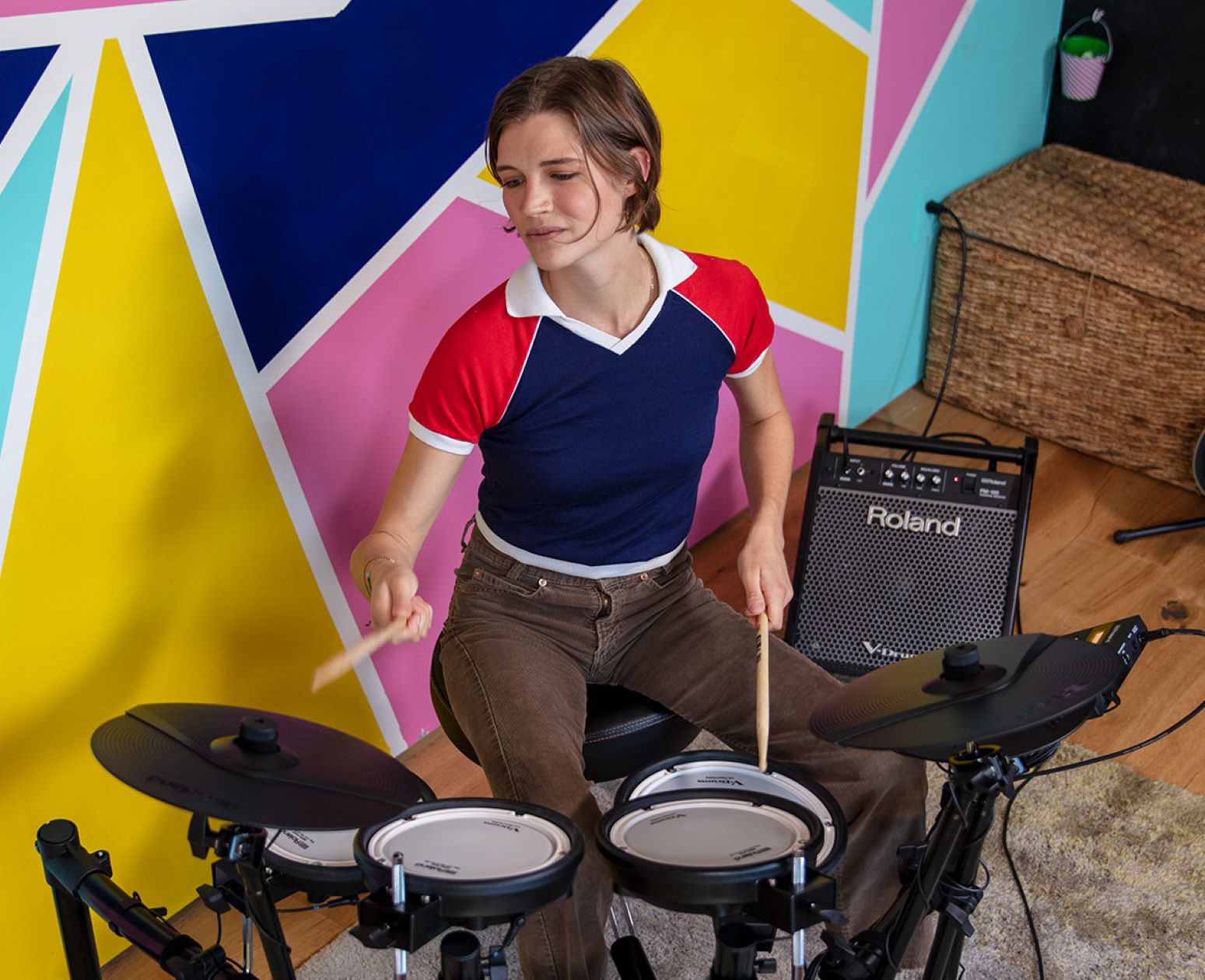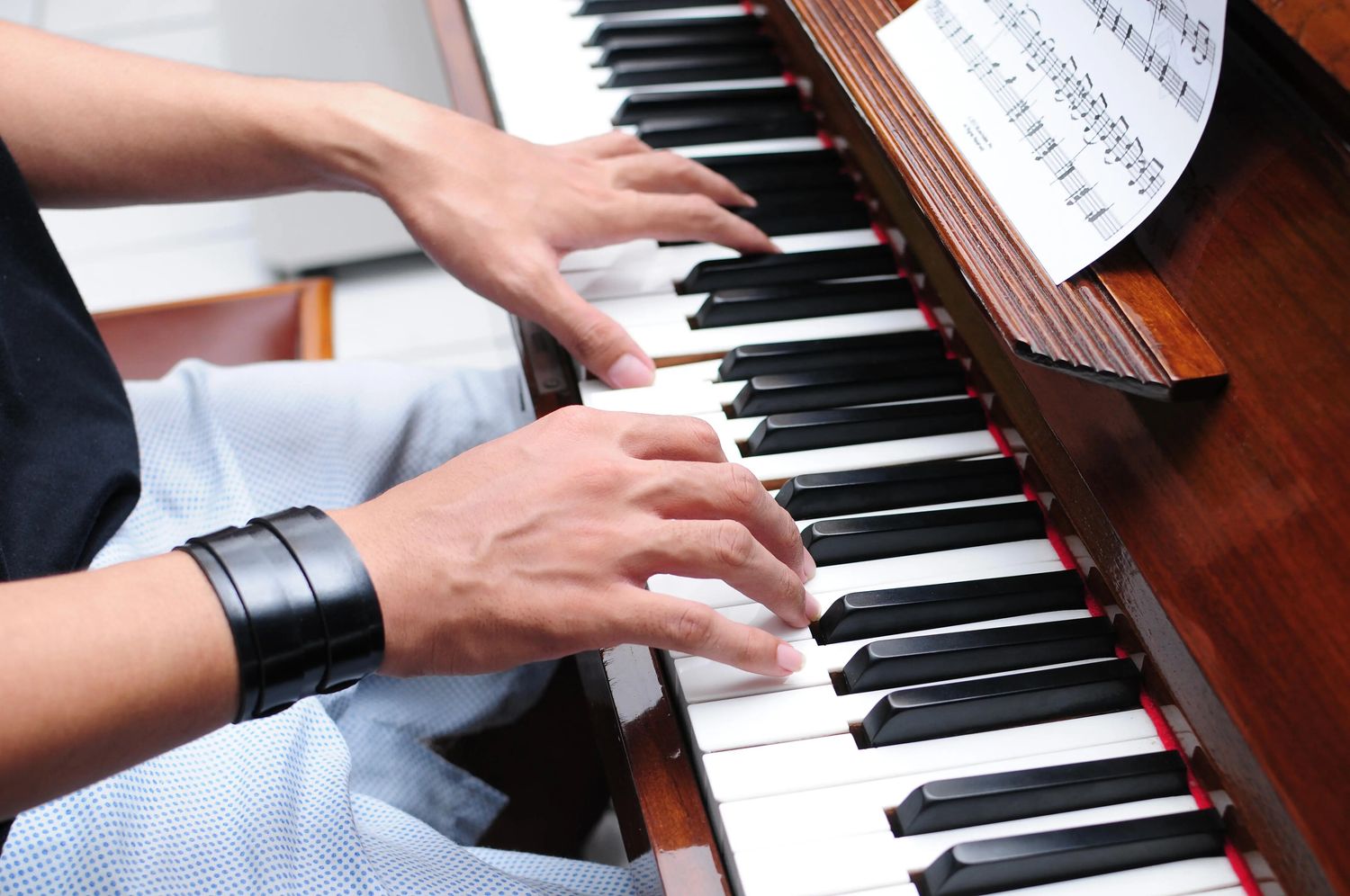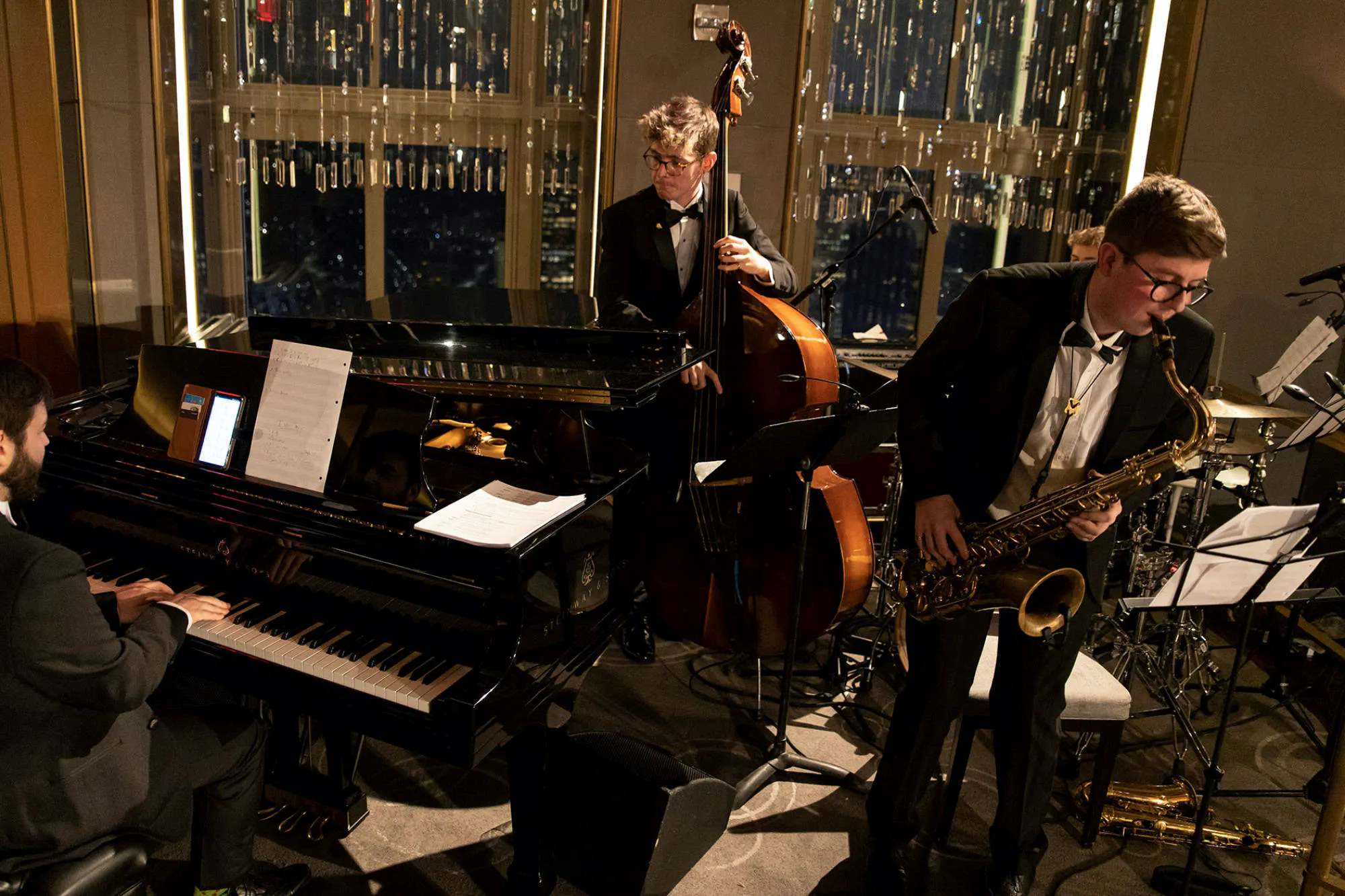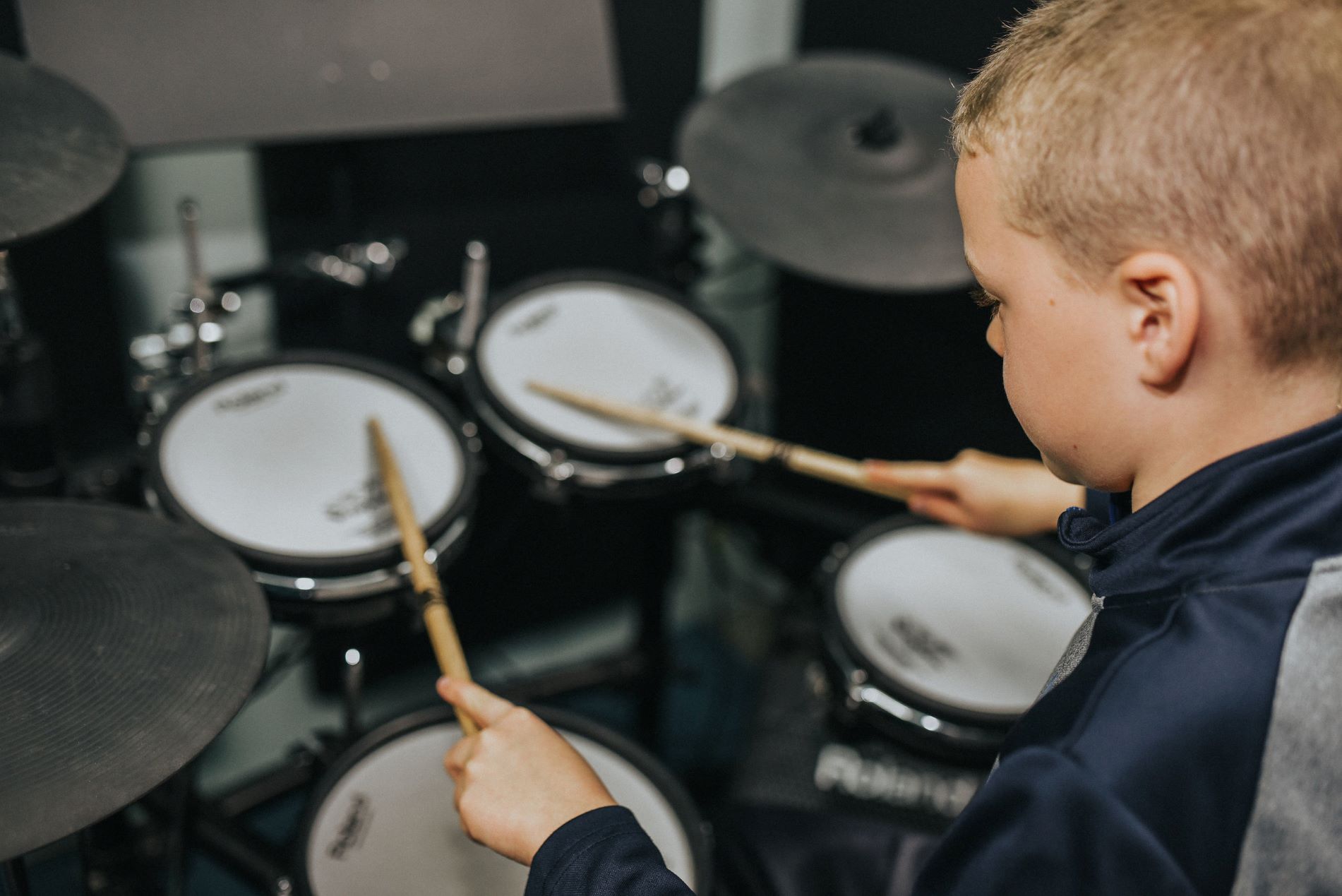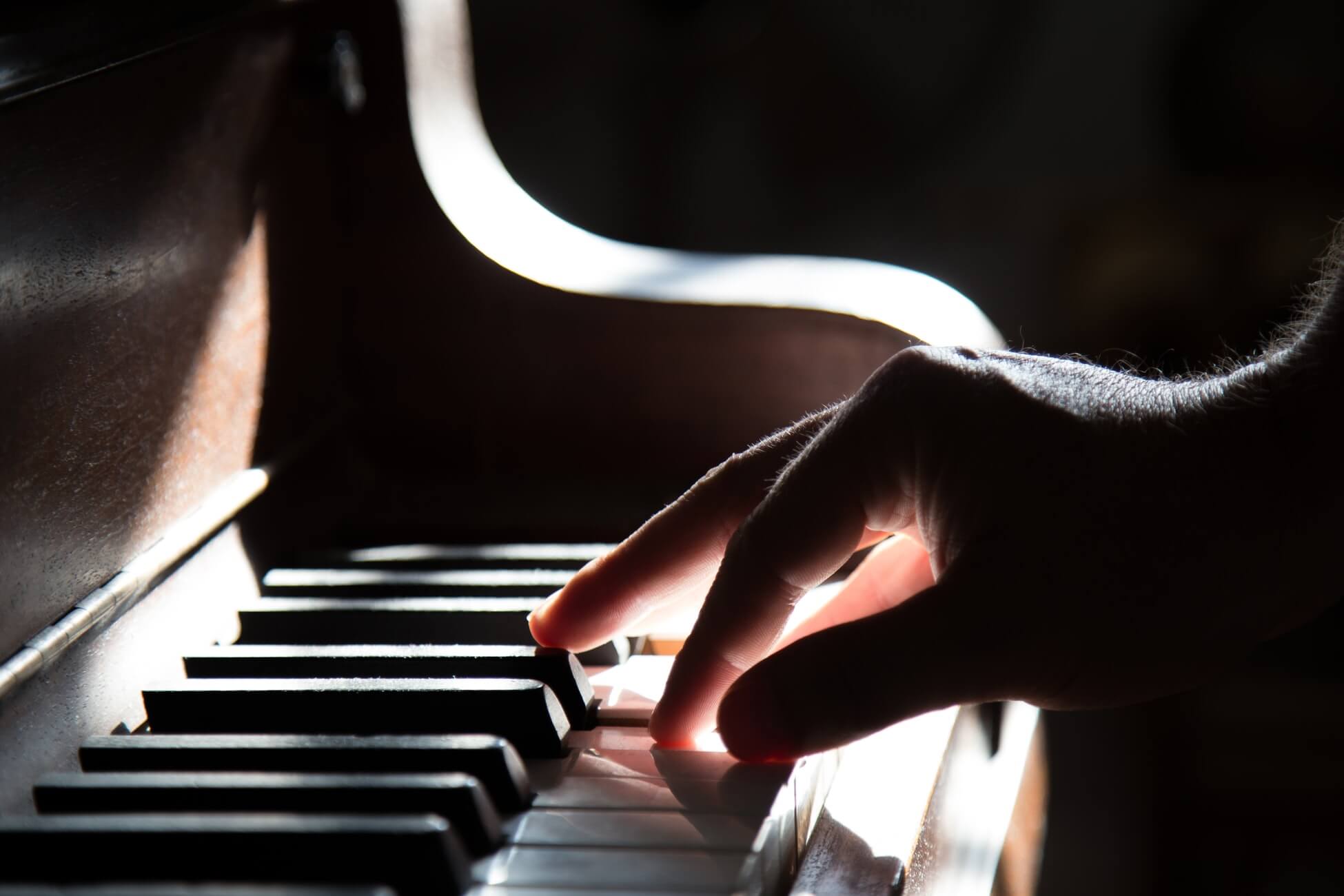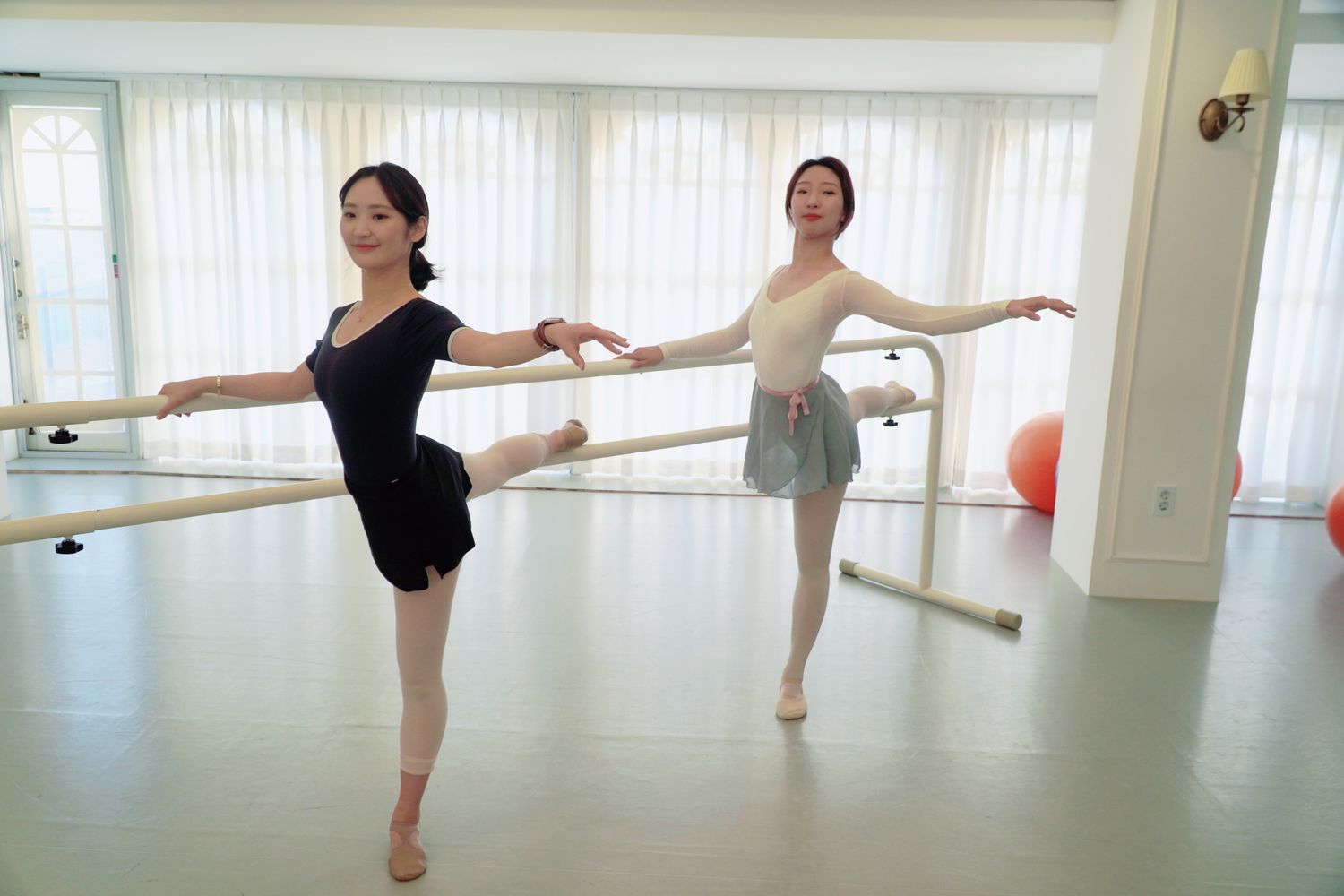Home>Production & Technology>DJ>How To Learn How To DJ
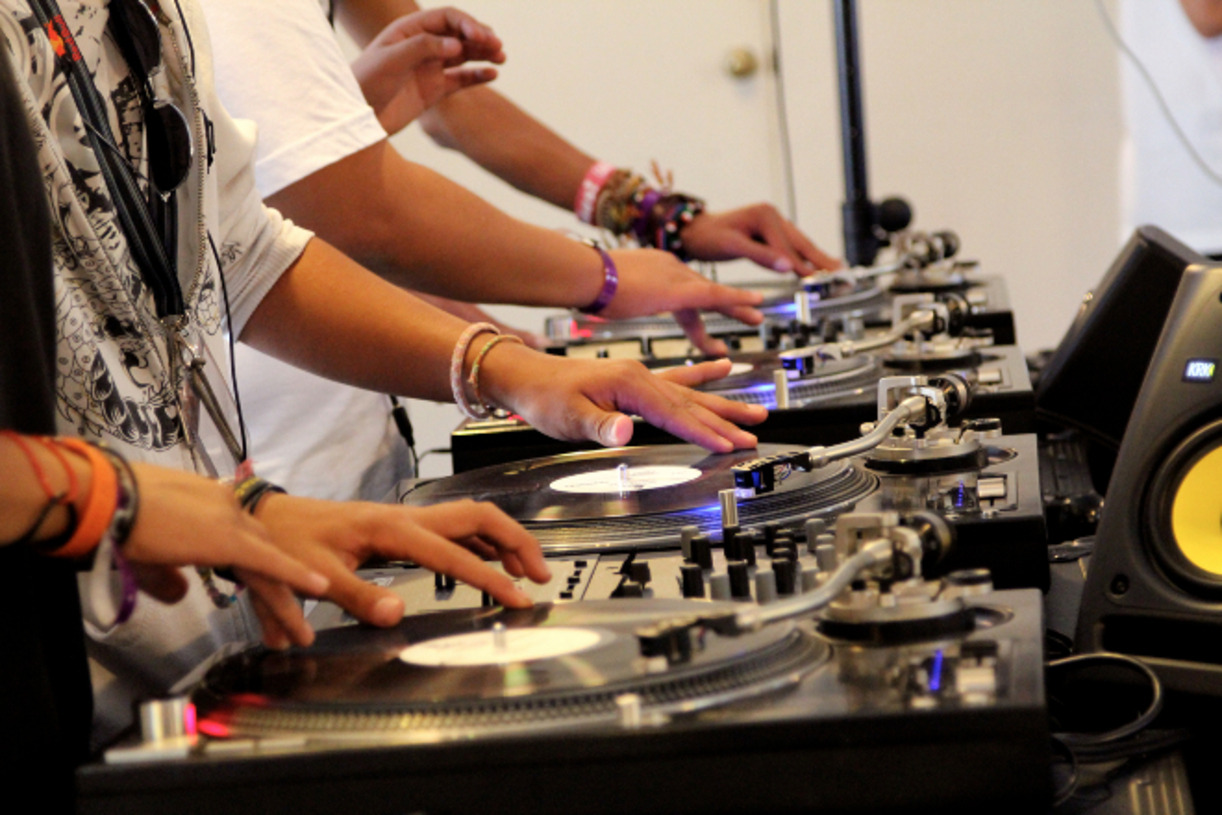

DJ
How To Learn How To DJ
Published: March 3, 2024
Learn how to DJ with our comprehensive guide. Master the skills and techniques needed to become a professional DJ and start your journey today.
(Many of the links in this article redirect to a specific reviewed product. Your purchase of these products through affiliate links helps to generate commission for AudioLover.com, at no extra cost. Learn more)
Table of Contents
Introduction
So, you want to learn how to DJ? Well, you're in for an exciting journey into the world of music and performance. DJing is not just about playing songs; it's about creating an experience, capturing emotions, and moving the crowd. Whether you're a music enthusiast, a budding artist, or someone who simply loves to mix and blend sounds, learning how to DJ can be an incredibly rewarding and fulfilling pursuit.
In this comprehensive guide, we will walk you through the essential steps to kick-start your DJing journey. From understanding the basics of DJing to mastering the technical skills, from building your music library to finding opportunities to showcase your talent, we've got you covered. By the end of this guide, you'll have a solid understanding of what it takes to become a skilled and versatile DJ.
DJing is a craft that requires a unique blend of technical proficiency, musical knowledge, and creative flair. It's not just about pressing buttons or fading tracks; it's about reading the crowd, understanding the vibe, and curating a seamless sonic experience. Whether you aspire to spin at clubs, festivals, private events, or even create your own music, the fundamentals of DJing remain the same.
So, if you're ready to dive into the art of DJing, fasten your seatbelt and get ready for an exhilarating ride. Whether you're a complete novice or someone with a basic understanding of DJing, this guide will equip you with the knowledge and resources to take your skills to the next level. Let's embark on this musical adventure together and unleash the DJ within you!
Understanding the Basics of DJing
Before diving into the technical aspects of DJing, it's crucial to grasp the foundational principles that underpin this art form. At its core, DJing is about creating a seamless and engaging musical journey for the audience. It involves blending, mixing, and transitioning between tracks to maintain a continuous flow of energy and emotion. Whether it's a pulsating club night or a laid-back lounge setting, a skilled DJ has the ability to captivate listeners and keep them immersed in the sonic tapestry being woven.
One of the fundamental skills in DJing is beatmatching, which involves aligning the tempo and rhythm of two tracks to ensure a smooth transition between them. This skill forms the backbone of seamless mixing and is essential for maintaining the groove on the dance floor. Additionally, understanding the structure of songs, such as intros, outros, and breakdowns, is crucial for crafting cohesive and dynamic sets.
Furthermore, a DJ must have a keen sense of timing and phrasing to create natural transitions between tracks. This involves knowing when to bring in new elements, when to build up the energy, and when to let the music breathe. It's akin to storytelling, where each track serves as a chapter in the overarching narrative being told through sound.
Equally important is the ability to read the crowd and gauge their energy and preferences. A skilled DJ can adapt their set in real-time, responding to the audience's reactions and adjusting the musical journey to keep the atmosphere electric. This intuitive connection with the crowd is what sets exceptional DJs apart, as they are able to create an emotional bond through the music they play.
Understanding the basics of DJing also involves familiarizing oneself with the equipment and technology used in the craft. From turntables and mixers to digital controllers and software, DJs have a wide array of tools at their disposal. Each piece of equipment has its own nuances and capabilities, and mastering them is essential for executing creative ideas effectively.
In essence, the basics of DJing encompass a blend of technical proficiency, musical intuition, and an innate understanding of how to move and connect with an audience through music. It's the foundation upon which the art of DJing is built, and mastering these fundamentals sets the stage for a fulfilling and successful journey into the world of DJing.
Choosing the Right Equipment
Selecting the right equipment is a pivotal step in the journey of becoming a DJ. The choice of gear can significantly impact the way you interact with music and perform. When it comes to DJ equipment, there's a wide array of options available, ranging from traditional vinyl turntables to modern digital controllers and software. Each type of equipment offers its own set of features, functionalities, and creative possibilities, catering to different styles and preferences.
Turntables and Vinyl
For those who appreciate the tactile feel and authentic sound of vinyl records, traditional turntables remain a timeless choice. The tactile feedback of vinyl manipulation and the warm, organic sound it produces can add a unique dimension to a DJ's performance. Turntables are favored by many purist DJs and vinyl enthusiasts who value the ritual of crate-digging and the art of beatmatching by hand.
CDJs and Digital Media Players
CDJs (Compact Disc Jockeys) and digital media players have revolutionized DJing by offering a seamless integration of digital music libraries with the tactile control of physical decks. These devices provide a familiar interface for DJs who are accustomed to the layout of traditional turntables while offering the flexibility of digital music management. With features such as waveform displays and advanced looping capabilities, CDJs and digital media players have become a staple in many club setups.
Controllers and Software
In the digital age, DJ controllers and software have become increasingly popular due to their versatility and convenience. These setups typically consist of a hardware controller that interfaces with DJ software running on a computer. The software provides a comprehensive platform for music management, performance, and creative manipulation. DJ controllers come in various shapes and sizes, catering to different workflows and preferences, and are often favored by mobile DJs and those who value portability and flexibility.
Mixer
Regardless of the choice of playback devices, a mixer is an essential component of a DJ setup. The mixer allows for seamless blending of multiple audio sources, adjustment of levels, application of effects, and manipulation of the sound. DJs often look for mixers with features such as multiple channels, robust EQ controls, and integrated effects to craft their sonic landscapes effectively.
In essence, choosing the right equipment involves understanding your preferred style of DJing, your workflow preferences, and the creative possibilities offered by different setups. Whether you opt for the tactile feel of vinyl, the versatility of digital media players, or the flexibility of DJ controllers, the right equipment can empower you to express your musical vision with precision and flair.
Learning the Technical Skills
Mastering the technical skills of DJing is akin to honing the dexterity of a musical instrument. It requires a combination of precision, timing, and an acute understanding of the tools at your disposal. One of the fundamental technical skills that every aspiring DJ should focus on is beatmatching. This involves aligning the tempo and phase of two tracks to ensure a seamless transition between them. Whether you're using turntables, CDJs, or digital controllers, the ability to synchronize the beats of two tracks is essential for maintaining the energy and flow of your set.
In addition to beatmatching, understanding the concept of phrasing is crucial for creating smooth transitions between tracks. Phrasing refers to the structure of a song, including its intro, outro, and breakdowns. By recognizing the natural phrasing of tracks, DJs can seamlessly blend them together, ensuring that the energy of the music remains uninterrupted.
Furthermore, the skill of manual dexterity and precision in handling the equipment is paramount. This includes mastering techniques such as cueing, pitch control, and crossfading. These techniques allow DJs to manipulate the music in real-time, adjusting the tempo, and blending tracks with finesse.
Another technical aspect that aspiring DJs should focus on is the use of effects and creative manipulation. Understanding how to apply effects such as reverb, delay, and filters can add depth and texture to your mixes, elevating the sonic experience for your audience.
Moreover, the technical skills of DJing extend to the realm of music management and organization. Building a well-curated music library, organizing tracks effectively, and understanding music file formats are all essential aspects of the technical skill set. With digital DJing, proficiency in music management software and understanding the intricacies of file formats, metadata, and tagging is crucial for seamless performance.
Finally, technical proficiency in understanding the equipment and technology being used is vital. Whether it's understanding the functionality of a mixer, the capabilities of a digital controller, or the intricacies of DJ software, a thorough grasp of the tools of the trade is essential for executing creative ideas effectively.
In essence, learning the technical skills of DJing is a multi-faceted endeavor that encompasses beatmatching, phrasing, manual dexterity, creative manipulation, music management, and equipment proficiency. By dedicating time and effort to mastering these technical skills, aspiring DJs can elevate their performances and create captivating musical experiences for their audience.
Understanding Music Theory and Genre Knowledge
Understanding music theory and genre knowledge is essential for any aspiring DJ looking to craft engaging and cohesive sets. Music theory forms the foundation upon which the entire landscape of music is built. It provides a framework for understanding the structural elements of music, such as melody, harmony, rhythm, and form. For DJs, having a grasp of music theory can greatly enhance their ability to select and mix tracks effectively.
One of the fundamental aspects of music theory that DJs should focus on is harmonic mixing. This involves understanding the musical keys of tracks and how they relate to each other. By harmonically mixing tracks that are in compatible keys, DJs can create seamless transitions that resonate harmoniously with the audience. This elevates the musical journey and maintains a cohesive sonic flow throughout the set.
In addition to harmonic mixing, having a deep knowledge of different music genres is crucial for a DJ's versatility and adaptability. Each genre has its own unique characteristics, rhythms, and energy levels. Understanding the nuances of genres such as house, techno, hip-hop, disco, and more allows DJs to tailor their sets to specific moods and atmospheres. Moreover, being well-versed in various genres enables DJs to surprise and engage their audience by seamlessly transitioning between different styles, creating dynamic and captivating sonic experiences.
Furthermore, genre knowledge empowers DJs to curate thematic sets that resonate with specific audiences. Whether it's a retro disco night, a deep house sunrise set, or a high-energy EDM festival performance, a thorough understanding of genre dynamics allows DJs to craft sets that resonate deeply with their listeners.
Moreover, the ability to identify and appreciate musical elements such as song structure, instrumentation, and sonic textures across different genres contributes to a DJ's musical depth and creativity. This knowledge allows DJs to blend tracks in a way that highlights the unique characteristics of each song, creating a rich and diverse musical tapestry.
In essence, understanding music theory and genre knowledge equips DJs with the tools to create cohesive, harmonically rich, and emotionally resonant sets. By delving into the intricacies of music theory and immersing themselves in diverse genres, DJs can elevate their performances and connect with their audience on a profound musical level.
Developing Your Own Style
Developing your own style as a DJ is a transformative journey that goes beyond technical proficiency and genre knowledge. It's about infusing your unique personality, creativity, and musical sensibilities into your performances, setting you apart as a distinct and compelling artist. Your style as a DJ is a reflection of your artistic identity, and it's what resonates with your audience on a deeper level.
One of the key elements in developing your own style is honing your sonic identity. This involves curating a sound that is distinctly yours, characterized by a signature blend of genres, moods, and sonic textures. By exploring a diverse range of musical influences and experimenting with unconventional combinations, you can carve out a sonic niche that sets you apart from the crowd. Whether it's infusing elements of jazz into your house sets or seamlessly blending retro classics with modern hits, your sonic identity is a testament to your musical eclecticism and creativity.
Furthermore, developing your own style involves embracing innovation and pushing creative boundaries. It's about daring to explore uncharted musical territories, whether it's through original productions, remixes, or inventive mixing techniques. By introducing unexpected elements and fresh perspectives into your sets, you can captivate your audience and leave a lasting impression. Embracing innovation allows you to evolve as an artist, continually refining and expanding your artistic vision.
Moreover, your style as a DJ is intricately linked to your stage presence and performance persona. It's about cultivating a captivating stage presence that exudes charisma, energy, and a genuine connection with the audience. Whether it's through your body language, interaction with the crowd, or the infectious enthusiasm you bring to your sets, your stage presence is a vital component of your artistic identity. It's what creates an immersive and memorable experience for your audience, leaving them eagerly anticipating your next performance.
In essence, developing your own style as a DJ is a deeply personal and artistic endeavor. It's about embracing your individuality, pushing creative boundaries, and crafting a sonic identity that resonates with your audience. By infusing your performances with innovation, authenticity, and a compelling stage presence, you can carve out a distinct and memorable artistic niche, leaving an indelible mark on the world of DJing.
Building Your Music Library
Building a comprehensive and diverse music library is a cornerstone of a DJ's journey. Your music library is not just a collection of songs; it's a palette of sonic colors, emotions, and energies that you can draw from to craft captivating musical experiences. Whether you're delving into the realm of vinyl, digital media, or a combination of both, curating a well-organized and expansive music library is essential for expressing your artistic vision and connecting with your audience.
The first step in building your music library is to explore a wide range of genres and eras. By immersing yourself in diverse musical styles, from classic disco and funk to contemporary electronic and experimental sounds, you expand your sonic vocabulary and creative potential. This exploration allows you to discover hidden gems, timeless classics, and emerging tracks that can add depth and dynamism to your sets.
Organizing your music library effectively is equally crucial. Utilizing robust music management software with comprehensive tagging, metadata, and playlist features enables you to categorize and access your music with ease. Implementing a systematic approach, such as organizing tracks by BPM, key, genre, and energy level, empowers you to swiftly navigate through your library during performances, seamlessly blending tracks and maintaining the flow of your set.
Furthermore, actively seeking out new music releases, remixes, and underground tracks keeps your music library fresh and dynamic. Engaging with record pools, digital music platforms, and fellow DJs allows you to stay abreast of the latest musical trends and discoveries. Additionally, maintaining a balance between timeless classics and contemporary hits ensures that your music library resonates with a wide audience, catering to diverse musical preferences and tastes.
Incorporating your personal edits, remixes, and exclusive tracks into your music library adds a distinctive touch to your sets. Whether it's your own productions, custom edits, or collaborations with other artists, infusing your library with exclusive content enhances your sonic identity and sets your performances apart. This personalized approach allows you to tailor your sets to specific venues, events, and audiences, creating a unique and memorable musical experience.
In essence, building your music library is an ongoing and dynamic process that requires a blend of exploration, organization, and personalization. By curating a diverse and well-structured music collection, you empower yourself to weave intricate sonic narratives, evoke emotions, and create immersive musical journeys that resonate deeply with your audience.
Practicing and Getting Feedback
Practicing is the backbone of honing your skills as a DJ. It's the crucible where technical proficiency, musical intuition, and creative flair meld into a seamless and captivating performance. Dedicate ample time to practice, experimenting with different mixing techniques, transitions, and track selections. Whether it's in the comfort of your own studio or behind the decks at a local venue, each practice session is an opportunity to refine your craft and expand your sonic repertoire.
In the realm of DJing, feedback is invaluable. It offers a fresh perspective, constructive criticism, and validation of your artistic choices. Seek feedback from fellow DJs, mentors, and even the audience. Their insights can shed light on aspects of your performance that you may not have noticed, helping you identify strengths to leverage and areas for improvement.
Recording your practice sessions and performances is an effective way to evaluate your skills objectively. By listening back to your sets, you can analyze your transitions, track selections, and overall flow. This self-assessment allows you to pinpoint areas that require refinement and celebrate moments of creative brilliance. Additionally, sharing your recorded sets with trusted peers and mentors can elicit valuable feedback that propels your growth as a DJ.
Embrace the art of constructive criticism. While it's natural to take pride in your artistic choices, being open to feedback fosters continuous improvement. Constructive feedback provides actionable insights that can elevate your performances, refine your mixing techniques, and expand your musical horizons. It's a catalyst for growth, pushing you to evolve as an artist and refine your unique sonic identity.
Moreover, seeking feedback from the audience is a powerful way to gauge the impact of your performances. Observing the crowd's reactions, energy levels, and engagement during your sets offers real-time feedback on the effectiveness of your song selections, transitions, and overall performance. This direct interaction with the audience provides invaluable insights that can inform your future artistic decisions and enhance your ability to create memorable experiences.
In essence, practicing and seeking feedback are symbiotic processes that propel your growth as a DJ. By dedicating yourself to deliberate practice and embracing feedback with an open mind, you can refine your skills, expand your artistic vision, and create performances that resonate deeply with your audience.
Networking and Finding Opportunities
Networking plays a pivotal role in the journey of a DJ, offering avenues to connect with industry professionals, fellow artists, and potential collaborators. Building a strong network opens doors to diverse opportunities, from securing gigs at renowned venues to collaborating on music projects and gaining exposure in the music scene.
One of the most effective ways to network as a DJ is to immerse yourself in the local music community. Attend club nights, music festivals, and industry events to connect with fellow DJs, event organizers, and music enthusiasts. Engaging in conversations, exchanging ideas, and showcasing your passion for music can forge meaningful connections that may lead to collaborative opportunities and performance bookings.
Utilizing social media platforms to expand your network is crucial in today's digital age. Establishing a strong online presence through platforms like Instagram, Facebook, and SoundCloud allows you to showcase your performances, share insights into your creative process, and connect with a global audience. Engaging with other artists, music labels, and event promoters on social media can amplify your visibility and open doors to international gigs and collaborations.
Joining DJ forums, online communities, and industry groups provides a platform to interact with like-minded individuals, share knowledge, and stay informed about industry trends and opportunities. These platforms serve as hubs for networking, enabling you to connect with experienced professionals, seek advice, and stay updated on upcoming events and music releases.
Collaborating with other artists and producers is a powerful networking strategy that can lead to exciting opportunities. By participating in collaborative projects, remix contests, and music production workshops, you not only expand your network but also gain exposure to new audiences and creative perspectives. These collaborations can lead to joint performances, shared studio sessions, and mutual support in the competitive music industry.
Additionally, reaching out to local venues, event organizers, and music promoters can open doors to performance opportunities. Sending out professional press kits, demo mixes, and personalized introductions demonstrates your initiative and commitment, potentially leading to bookings at clubs, festivals, and special events.
In summary, networking as a DJ is a multifaceted endeavor that involves active engagement in local music scenes, leveraging social media platforms, participating in online communities, collaborating with fellow artists, and reaching out to industry professionals. By nurturing a robust network, DJs can unlock a myriad of opportunities, expand their artistic horizons, and establish a lasting presence in the vibrant world of music and performance.
Conclusion
Embarking on the journey to learn how to DJ is a thrilling and multifaceted endeavor that encompasses technical proficiency, musical intuition, and creative expression. From mastering the art of beatmatching and seamless transitions to curating a diverse and dynamic music library, every facet of DJing is a testament to the dedication and passion of aspiring artists.
Aspiring DJs must strive to understand the foundational principles of DJing, which extend beyond the technical aspects to encompass reading the crowd, adapting to the energy of the room, and creating an immersive sonic experience. This understanding forms the bedrock of a DJ's ability to connect with the audience and curate a musical journey that resonates deeply.
Choosing the right equipment is a pivotal decision that shapes a DJ's interaction with music and performance. Whether opting for traditional vinyl turntables, modern digital controllers, or a combination of both, the choice of equipment influences the creative possibilities and workflow preferences of each DJ.
Mastering the technical skills of beatmatching, phrasing, manual dexterity, and creative manipulation is essential for crafting seamless and captivating performances. Additionally, understanding music theory and genre knowledge empowers DJs to curate cohesive and harmonically rich sets that resonate with diverse audiences.
Developing a unique and distinctive style is a transformative journey that involves infusing personal creativity, sonic identity, and stage presence into performances. It's about embracing innovation, pushing creative boundaries, and cultivating a stage persona that captivates and connects with the audience on a profound level.
Building a comprehensive music library is not just about collecting songs; it's about curating a palette of sonic colors and emotions that empowers DJs to craft diverse and engaging sets. Effective organization, exploration of diverse genres, and the incorporation of personalized content enrich the artistic depth of a DJ's music library.
Practicing diligently and seeking feedback from peers, mentors, and the audience are essential components of a DJ's growth. It's through deliberate practice and an open-minded approach to feedback that aspiring DJs refine their skills, expand their artistic vision, and create performances that resonate deeply.
Networking is a cornerstone of a DJ's journey, offering avenues to connect with industry professionals, fellow artists, and potential collaborators. Building a strong network opens doors to diverse opportunities, from securing gigs at renowned venues to collaborating on music projects and gaining exposure in the music scene.
In conclusion, the art of DJing is a dynamic and immersive pursuit that demands a blend of technical proficiency, musical depth, creative innovation, and a strong network. By embracing these fundamental principles and embarking on a journey of continuous growth and exploration, aspiring DJs can carve out a distinct and memorable presence in the vibrant world of music and performance.

